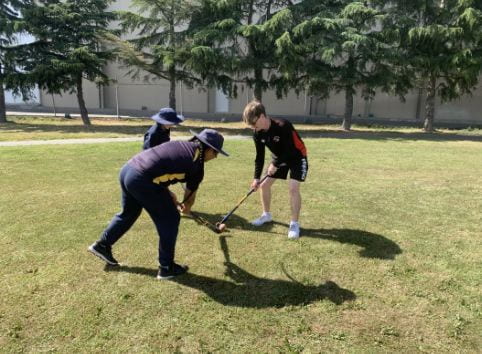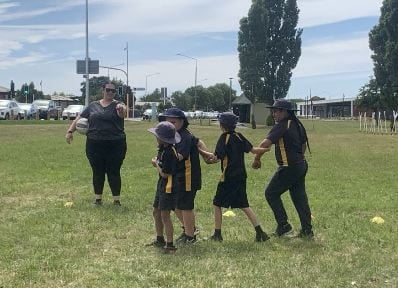Bonjour, bloggers!
This week it is book week! we have been celebrating a love of reading.
At Hornby Primary School we have had a number of different competitions and challenges. for example we had a “reading in unusual places” competition, we had to take a photo of ourselves reading in an unusual place. For example, upside down. Each class has also had a visit to our Matatiki Hornby Centre Library, this friday, we had to dress up as a book character. But, by far the most popular costume was Harry Potter. We have also had a Door display competition, our class, room 9&10, created the winning piece. We created a 101 dalmatians decoration for our door, but, we made a mistake. We made 112 dalmatians!
I hope you have enjoyed my work.
See you later!


 (The work left is currently unfinished.)
(The work left is currently unfinished.)



